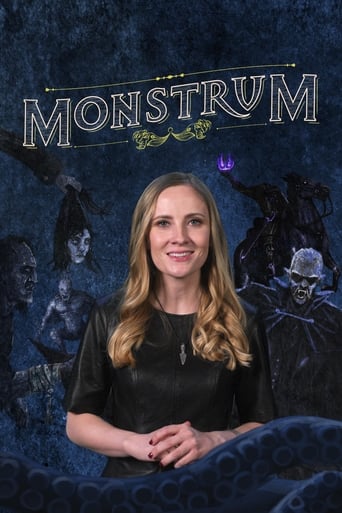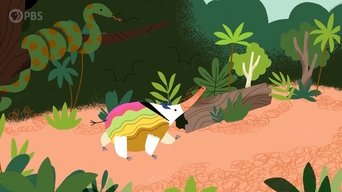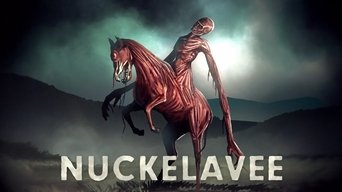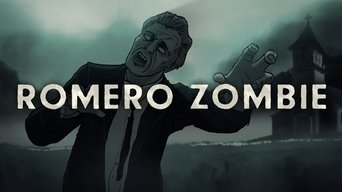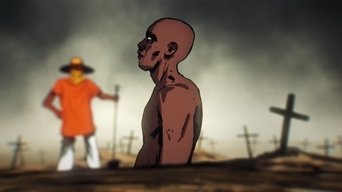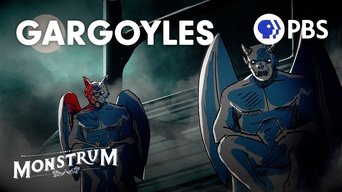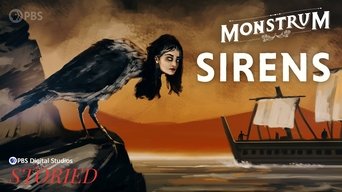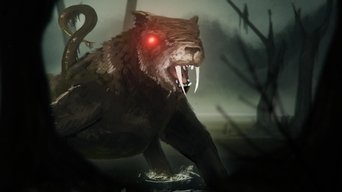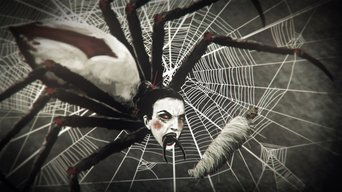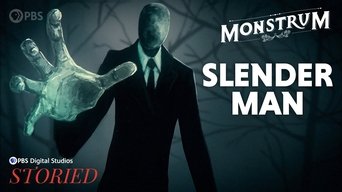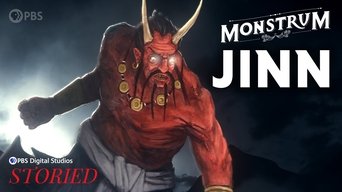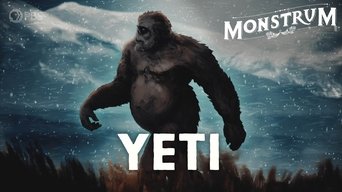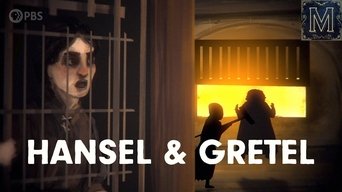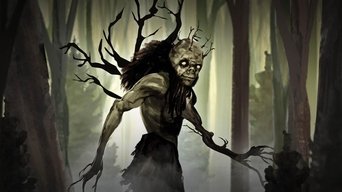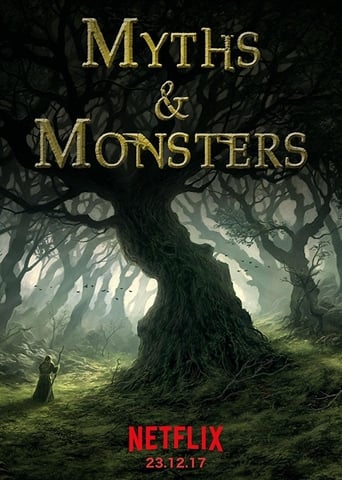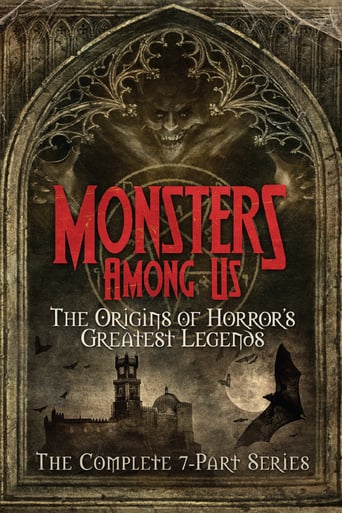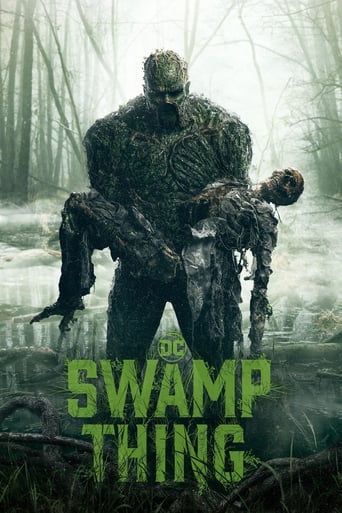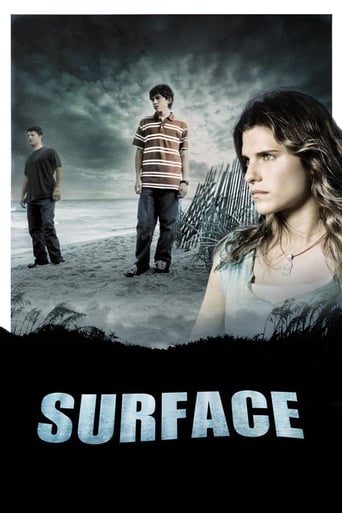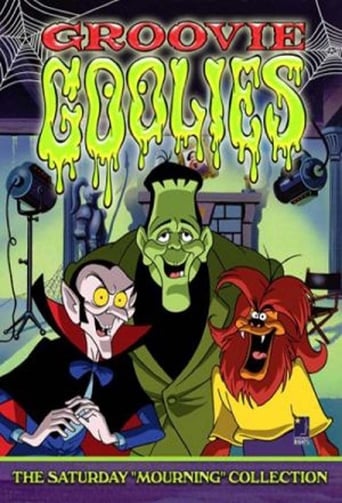Monstrum Season 2

The world is full of monsters, myths, and legends and Monstrum isn’t afraid to take a closer look. The show, hosted by Emily Zarka, Ph.D., takes us on a journey to discover a new monster for each new episode. Monstrum looks at humans unique drive to create and shape monster mythology through oral storytelling, literature and film.
Watch NowWith 30 Day Free Trial!
Monstrum
2018
Season 2 aired on 2/21/20
Watch Trailer
With 30 Day Free Trial!
Monstrum Season 2 Full Episode Guide
A sky deity falling from the sky sounds bad, right? Not if it’s the Kasogonagá! From the mythology of the Toba peoples of South America, this god of lightning, thunder, and rain appears as a small, hairy anteater-like creature and needs a bit of human intervention to return to the skies.
The pontianak, or kuntilanak, has long been a staple of Malay horror. In addition to serving as an allegory for the tension between traditional and modern cultural and spiritual practices, these monsters gave name to a real city. In this episode, you’ll learn how Islamic trade routes, animism, and the role of women in Southeast Asia contribute to stories of this notorious ghost.
This horse-like horror of Scottish folklore emerges from the sea bringing death and disease. With origins in Orcadian folklore this demonic creature was blamed for plagues, drought, and death in equal measure. This episode explores how the history of the Orkney Islands, the influence of Norse mythology, a real equine disease, and the kelp trade crafted a terrifying, skinless monster.
This final episode of our three-part series, brings us to the 21st-century zombie where the monstrous legacy of both the original Haiti zombi and the Romero ghoul play a role in the rebirth of public interest in the zombie. Explore how the effects of new global anxieties like terrorism, bioweapons, global warming and overpopulation have forever solidified the zombie narrative in global society.
The second episode of our three-part special series looks at the Romero zombie. Considered the “godfather of zombies,” Romero’s 1968 film The Night of the Living Dead introduced the flesh-eating reanimated corpse to popular culture. Notably, the Romero zombie’s introduction during a time of great political and cultural unrest in America impacted how it was received—and why we still talk about it.
In the first episode of our three-part special series, we explore the complex history of the zombie—from its origins in the spiritual beliefs of the African diaspora to the development of Vodou in Haiti. Learn how one of the most enduring monsters in popular culture evolved in the midst of slavery, racism and prejudice.
Before these stoney grotesques became monsters they were just water spouts. We still adorn our buildings with the carvings and sculptures of the frightening, funny, and exaggerated forms—but why? Learn all about the strange history of the gargoyle monster and how the power of imagination turned some odd looking architecture into a legendary creature.
19th century London and the hunting ground of Spring-Heeled Jack. The fire-breathing, wall-leaping, claw-wielding devil attacked women in their homes and in the streets, terrorizing England for more than 50 years. Learn how Spring-Heeled Jack manifested the fears of the development of urban spaces and the upheaval of social classes and lifestyle changes city life afforded in the 1800s.
While reported sightings of a mysterious creature in Loch Ness go back hundreds of years, it received little global recognition until the 1930s. Historical records, newspapers articles, blockbuster films, and advanced scientific technologies all play a role in this story. Watch this episode to find out what theories have been disproven—and what questions are still unanswered.
This episode explains how sirens appeared in ancient history, from literature to art, and looks at how the half human half bird creatures became more commonly associated with mermaids. From Ancient Greek legends to Medieval bestiaries, and even Egyptian hieroglyphics, the siren’s history is so much more complicated than you think.
Originating in the stories and beliefs of the southeastern Indigenous peoples of Australia, accounts of the bunyip are widely varied. This episode uses Aboriginal stories, historical records, and fossils to explore the bunyip legend, and take a look at how European colonization impacted Australia and its Indigenous peoples.
Although able to appear as a beautiful young woman, the jorōgumo is really a deadly spider monster in disguise. This episode dives into the fascinating world of yōkai and the long history of beautiful women and spiders in Japanese folklore. You’ll learn about the real-world spider that may have inspired this monster, and discover two of the oldest recorded jorōgumo stories in existence.
In this special episode, Dr. Zarka shows you what’s inside her “go bag,” a kit of survival supplies she keeps on hand at all times. In this episode you’ll find out how the horror genre can inspire real-world preparedness and take a look at how humans throughout history use literature, film, and art as ways to explore (and even practice for) real-world pandemics and disasters.
Dr. Zarka explains the timeline of this Internet folklore sensation, examining how unlike so many other monster origins stories, we know exactly when and why this one was created. From Creepypasta to video games, horror movies to doctored photographs, Slenderman is everywhere. Find out why he consumes our imaginations.
Jinn is a popular character in fiction and their origins continue to influence Islamic cultures today. From the Qur’an to The Thousand and One Nights, the story of Aladdin to I Dream of Jeannie and everything in between—the jinn are more than just a being trapped in a lamp who grants wishes. They’re powerful, intellectual entities whose stories are woven into ancient Islamic culture.
Dr. Zarka examines the yeti’s origins, from Tibetan folklore and religion to the Westernized abominable snowman version. She explains how Buddhist beliefs, a series of intrepid 20th-century explorers, and a creatively translated word make the yeti the creature we recognize today—and how it led to some pretty incredible scientific discoveries.
Hansel and Gretel is one of the most famous fairy tales of the Western world, and contains one of the most notorious witches. In this episode you’ll learn about witch trials in Germany, the role famine and poverty play in creating monsters, and how the Grimm brothers evolved oral folklore into legendary tales. The real story of Hansel and Gretel is even more scary than you think.
He can grow higher than the trees, or smaller than a blade of grass. Both demon and deity, guardian and antagonist, the Leshy is rooted deep in the cultural and religious history of the Slavic people.
Free Trial Channels
Seasons


